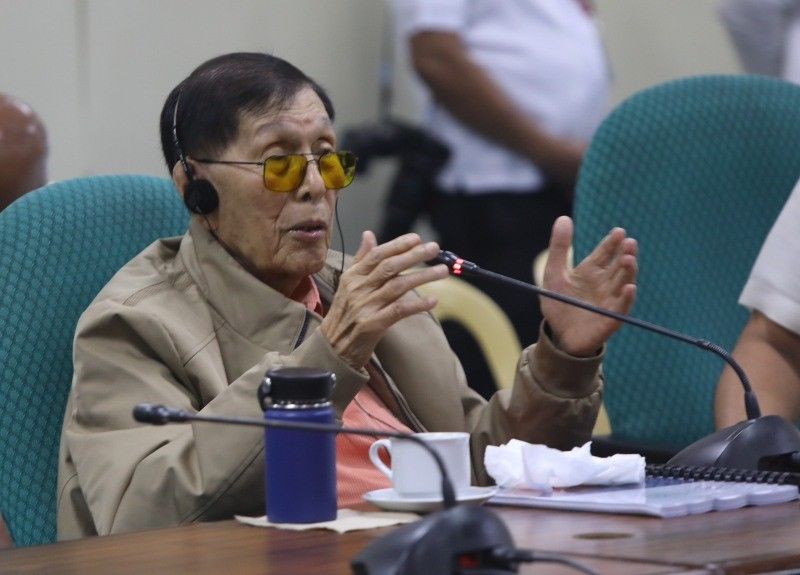Enrile wants to lift constitutional ban on nukes. Here's why Philippines can't do that

MANILA, Philippines — Chief presidential legal counsel Juan Ponce Enrile suggested Wednesday to lift the constitutional ban on nuclear weapons even if the Philippines is party to treaties that prevent it from acquiring these.
The Philippines signed in 2017 the Treaty on the Prohibition of Nuclear Weapons which bans the development, testing, production, acquisition, possession and stockpiling of nuclear weapons. The Senate unanimously concurred in the ratification of this treaty in 2021.
On top of this, the country is also a party to the Southeast Asian Nuclear-Weapon-Free Zone Treaty.
Still, Enrile called the constitutional ban on nuclear weapons “the most serious and unwanted provision” of the Charter.
“In the modern world today, a small country can protect itself against the superpowers if they have nuclear weapons. We should remove that restriction and make the country flexible,” Enrile said.
He continued, “If we can afford it, we should also have nuclear weapons so that our people would not be trampled upon let alone made a tuta (puppy) or alipin (slave) of other countries. We must be sure that we make our people equal, if not better than others.”
The 1987 Constitution states that the country adopts and pursues "a policy of freedom from nuclear weapons in its territory."
But even before the current Charter, the Philippines had already adopted a policy against nuclear weapons.
As early as 1968, during the time of the first Marcos administration during which Enrile was justice secretary, the Philippines signed the Treaty on the Non-Proliferation of Nuclear Weapons which aimed to prevent the spread of nuclear weapons and weapons technology.
The Philippines in the same year entered into a safeguards agreement with the International Atomic Energy Agency which provided that nuclear materials used in peaceful applications should not be used to develop weapons.
Despite this history, Senate constitutional amendments panel chairperson Robinhood Padilla and Senate defense panel chairperson Jinggoy Estrada agreed with Enrile’s stance.
Padilla said he might pursue this amendment to the Constitution after his current push for changes to the economic provisions of the Charter which he deems to be restrictive.
“We are in the nuclear age, let’s not deny that. We are really in that period and we will study that carefully in Congress,” he said in Filipino in a news conference.
- Latest
- Trending































